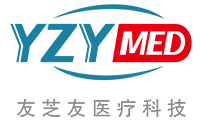文章来源:医脉通
2015年ASCO年会将于5月29日--6月2日在美国芝加哥召开,5月31日上午的非小细胞肺癌(NSCLC)口头报告专场,将公布AZD9291一线治疗EGFR突变晚期NSCLC患者的I期扩大队列的研究结果,摘要公布的结果表明客观缓解率为70%,疾病控制率为97%。以下为详细内容。
背景:AZD9291是一种口服的EGFR TKI抑制剂,可对抗EGFR敏感突变和T790M耐药突变。已有研究证明其在经过EGFR-TKI治疗的EGFR突变T790M阳性晚期NSCLC患者中的抗癌活性。
方法:在这个首个人体的I期研究(AURA,NCT01802632)中,未经治疗的EGFR突变晚期NSCLC患者接受AZD9291治疗,剂量为80mg/d或者160mg/d(顺序队列)。在治疗地点对患者的EGFR突变状态进行检测,和/或通过中央检测进行确认(cobas EGFR突变检测)。入组标准包括存在可测量的疾病,WHO体能状态为0或1,可接受的器官功能。稳定的脑转移疾病也被允许入组。该队列研究的目的是调查AZD9291一线治疗EGFR突变患者的安全性、耐受性和抗癌活性。
结果:一共纳入60名患者(80mg和160mg剂量队列各有30人)。患者基线特征为:平均年龄63.5岁;亚洲人72%,白人23%;突变检测结果发现外显子19 del为37%,L858R为40%,其他EGFR敏感突变为3%,T790M为8%。在2014年12月2日数据截止时,60名患者中有52名一直参与研究,80mg和160mg队列的平均治疗暴露期为260天和171天。
客观缓解率为70%(95%CI,57-81):80mg,60%;160mg,80%。中位无进展生存期(PFS)还未达到。疾病控制率为97%(95%CI,89-100):80mg,93%;160mg,100%。总体而言,3个月和6个月的PFS率为93%和87%(7/60事件,达到12%)。
33%患者出现≥3级的不良事件。两个剂量组的3级皮疹和腹泻的发生率一共是1/60和2/60。
结论:AZD9291有可控的耐受性表现,一线治疗EGFR突变晚期NSCLC患者呈现出良好的抗癌活性。对比AZD9291与厄洛替尼或吉非替尼的III期临床试验已经启动(NCT02296125)。临床试验信息:NCT01802632
会议专题》》》2015年ASCO年会专题报道
阅读摘要原文
AZD9291, a mutant-selective EGFR inhibitor, as first-line treatment for EGFR mutation-positive advanced non-small cell lung cancer (NSCLC): Results from a phase 1 expansion cohort.(Abstract No:8000)
Author(s): Suresh S. Ramalingam, James Chih-Hsin Yang, et al
Type: Oral Abstract Session
Background: AZD9291 is an orally administered EGFR TK inhibitor with activity against the sensitizing EGFR mutations (EGFRm) and the T790M resistance mutation. It has demonstrated anticancer activity in patients with EGFR-TKI pre-treated EGFRm T790M positive advanced NSCLC.
Methods: Treatment-na?ve patients with EGFRm advanced NSCLC received AZD9291 at doses of 80 mg/day or 160 mg/day (sequential cohorts) in the first-in-human phase I study (AURA, NCT01802632). EGFRm status was tested locally at the treating site and/or confirmed by central testing (cobas EGFR mutation test). Salient eligibility included presence of measurable disease, WHO performance status of 0 or 1, and acceptable organ function. Stable brain metastases were permitted. The objective of these cohorts was to investigate safety, tolerability, and anticancer activity of AZD9291 in the first-line EGFRm treatment setting.
Results: Sixty patients were enrolled (30 each in 80 mg and 160 mg dose cohorts). Patient baseline characteristics: median age 63.5; male 25%; WHO performance status 0.57%, 1.43%; Asian 72%, and white 23%; central mutation test result exon 19 del 37%, L858R 40%, other EGFR sensitizing mutations 3%, T790M 8%. At the data-cutoff of 2 December 2014, 52 out of 60 patients remain on study treatment with a median treatment exposure of 260 days and 171 days for 80 mg and 160 mg cohorts, respectively. The objective response rate was 70% (95% CI 57, 81): 80 mg, 60%; 160 mg, 80% and the median progression-free survival (PFS) has not been reached. The disease control rate was 97% (95% CI 89, 100): 80 mg, 93%; 160 mg, 100%. Overall, the 3- and 6-month PFS rates were 93% and 87%, respectively (7/60 events, 12% mature). Grade ≥ 3 AEs were reported by 33% of patients. The incidences of grade 3 skin rash and diarrhea for the two dose cohorts combined were 1/60 and 2/60, respectively.
Conclusions: AZD9291 has a manageable tolerability profile and is associated with promising anticancer activity as first-line treatment of EGFRm advanced NSCLC. A Phase III study to compare AZD9291 to erlotinib or gefitinib has been initiated (NCT02296125). Clinical trial information: NCT01802632




